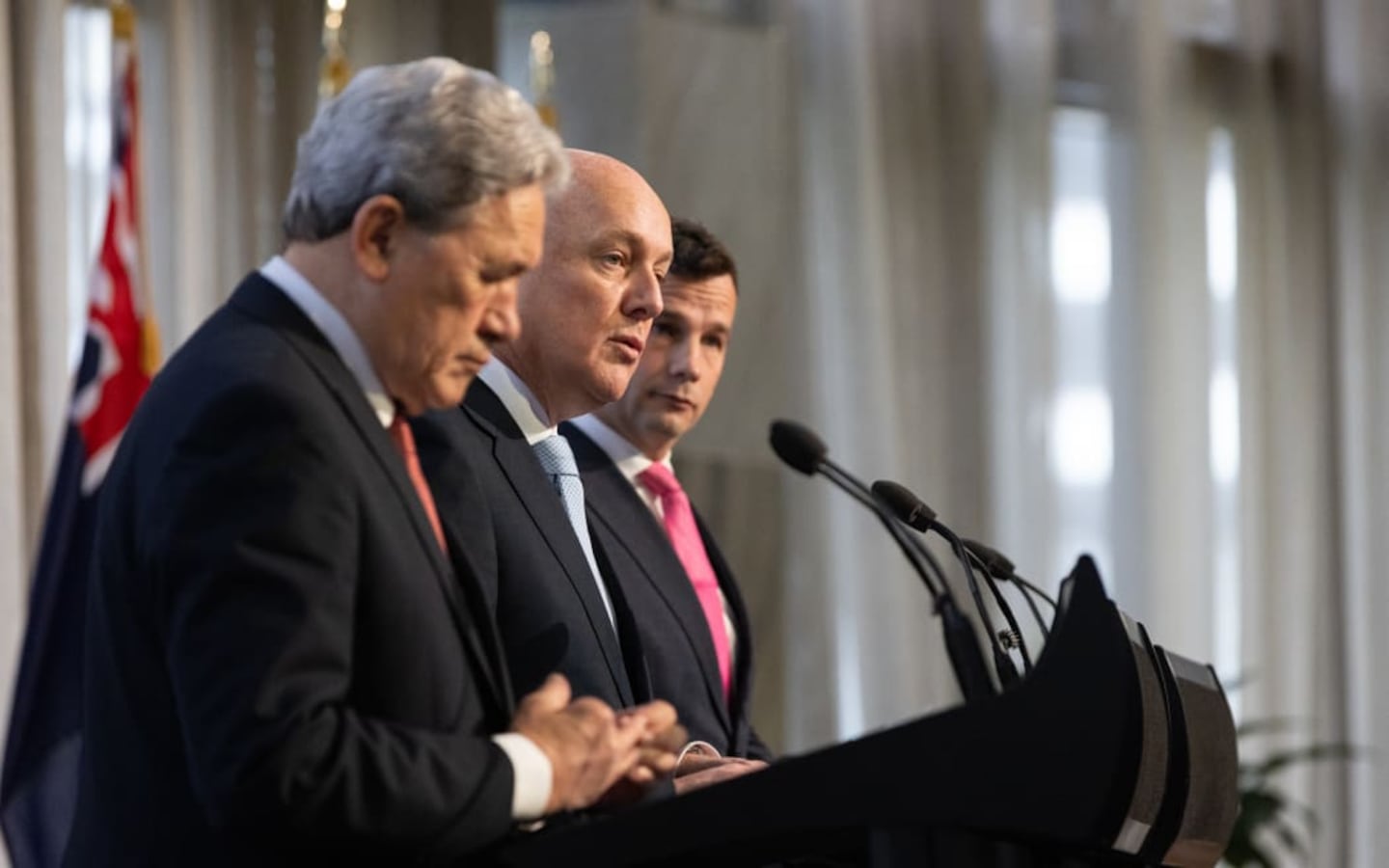The incoming government says it will make departments use English branding and scale back the ability of the courts to consider Te Tiriti o Waitangi.
The coalition agreements between National, ACT and NZ First included about a dozen promises related to Crown-Māori relations. These policies were widespread, but generally promised reform of the New Zealand legal system and public service, impacting everything from the courts, to government branding, to the provision of health and social services.
Crucially, the much discussed ACT Party proposal to hold a Treaty referendum has not been entirely killed off. But National has not yet agreed to it, either.
And a NZ First policy, to repeal or replace mentions of “the principles of the Treaty” in all legislation – other than settlement acts – has been agreed to.
Te Pāti Māori co-leader Debbie Ngarewa-Packer said the coalition agreements would establish “a hostile” and “regressive” government, focused on undoing incremental changes.
“What a hostile, backward-looking government for Māori. I’ve never seen anything like it in my life. They have taken a stand against incremental, very small, steps that Māori have achieved over the last 20 to 40 years to address inequities,” she said.
She expected that policies about Te Tiriti and the environment would lead to significant blowback, and invigorate younger voters to turn against the government.
“Sometimes we need to have a one-term government that shakes things up to remind us what is really important. I think this is the time when Aotearoa will see absolute chaos,” she said.
Instead of supporting a referendum from the get go, the coalition parties have agreed to support ACT’s Treaty Principles Bill through its first reading “as soon as practicable”. That means a select committee will hear submissions about Te Tiriti o Waitangi, and public support for a referendum to redefine its principles.
Parliament would then be called to vote on whether to redefine the principles of Te Tiriti o Waitangi, and if a referendum should be held. National leader Christopher Luxon said he would consider, at the time, whether to trigger a referendum or not.
“Our government is actually going to support the passing of that bill through the first reading and to select committee. And that is the extent of our commitment at this stage,” Luxon said.
Seymour said the policy “deserves to continue through later stages and to referendum”, indicating he still saw hope of holding a referendum on the principles of Te Tiriti.
Labour leader Chris Hipkins said the coalition appeared “confused” and determined to “divide”.
“This is definitely going to be a government that is going to drive New Zealanders apart, and lead to more polarisation of the country than we have seen to date,” he said, after the coalition documents were released on Friday.
All three coalition partners had agreed to abolish Te Aka Whai Ora, the Māori Health Authority – a campaign promise which medical experts had criticised as short-sighted.
The ACT and National agreement also included a policy to “examine” affirmative actions programmes at the universities of Auckland and Otago. It named MAPAS, Auckland’s Māori and Pacific Admission Scheme, which ensures a greater number of Māori and Pasifika students gain entry into competitive courses such as law and health.
NZ First also secured a number of policies related to Te Tiriti o Waitangi and Māori affairs. The most significant was its policy to repeal mentions of “the principles” in every piece of legislation, which could have ramifications for the breadth of impact Te Tiriti o Waitangi has.
The agreement also called for reform of the Waitangi Tribunal, “to refocus the scope, purpose, and nature of its inquiries back to the original intent”.
National and NZ First also wanted to make every government department “communicate primarily in English”.
This would mean every agency that wasn’t “specifically related to Māori” would need to have an English name. Early in the campaign, Luxon and NZ First leader Winston Peters both focused on the level of bilingualism in government, arguing the public was confused by the amount of te reo in use.
Luxon specifically focused on Waka Kotahi (NZTA), Te Whatu Ora (Health NZ), and Te Pūkenga (NZ Institute of Skills and Technology), as examples of where he thought “older people” were confused.
Oranga Tamariki and Manatū Taonga also preferred to use their reo Māori names instead of English names, the Ministry for Children and Ministry of Culture and Heritage.
On the topic of bilingualism, NZ First also secured National’s support to officially legislate for English to be an “official language”. Arguably, given most law is written and debated in English, this would already be the case.

